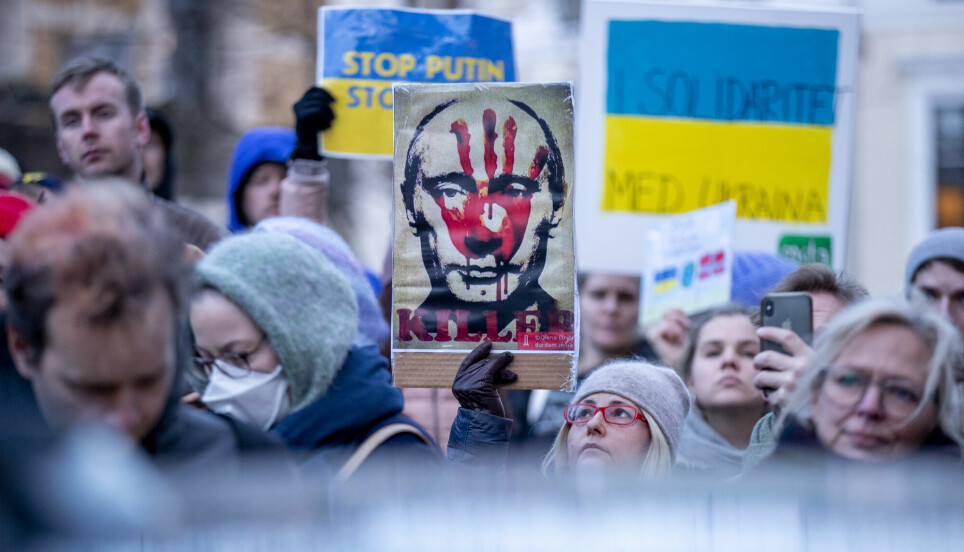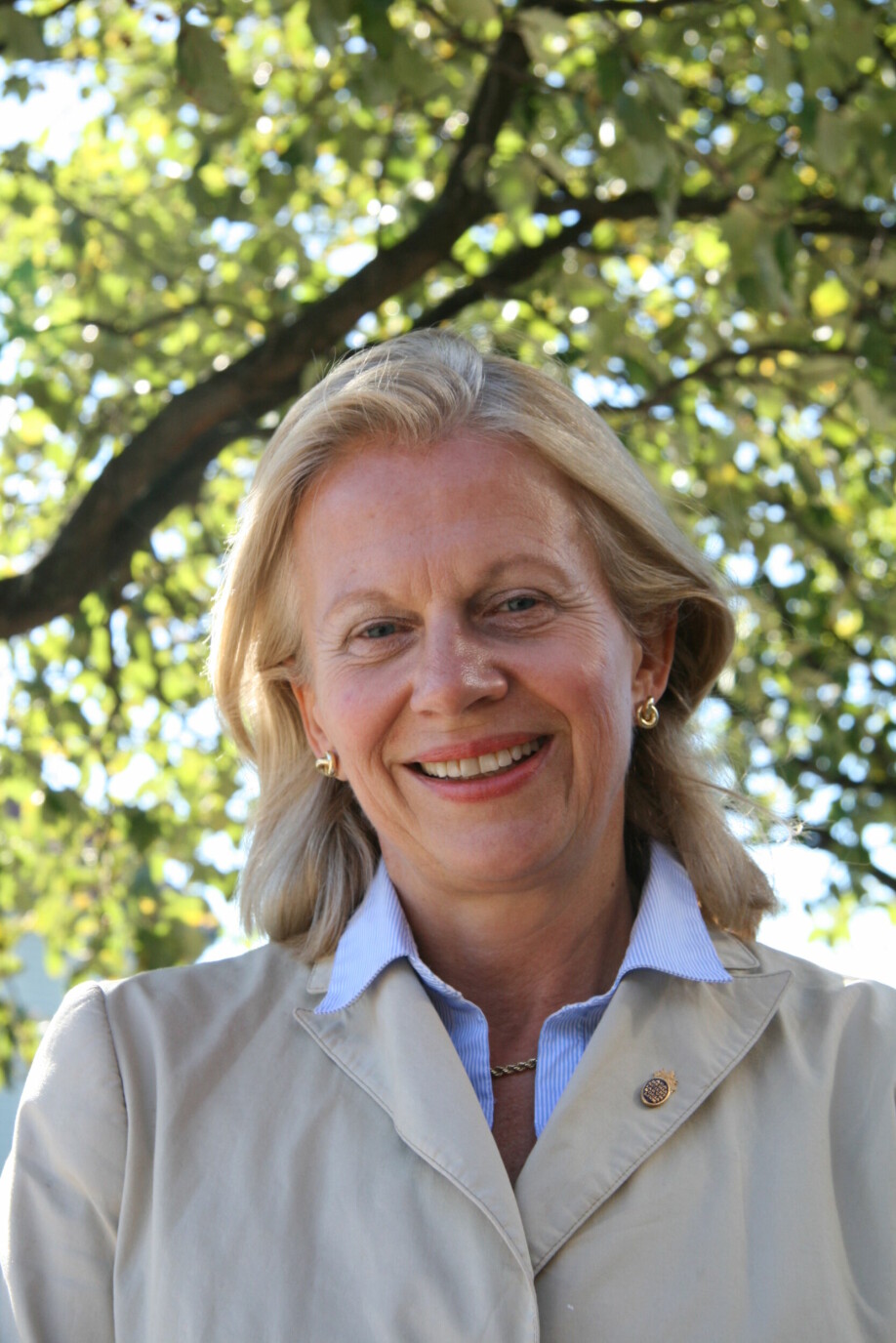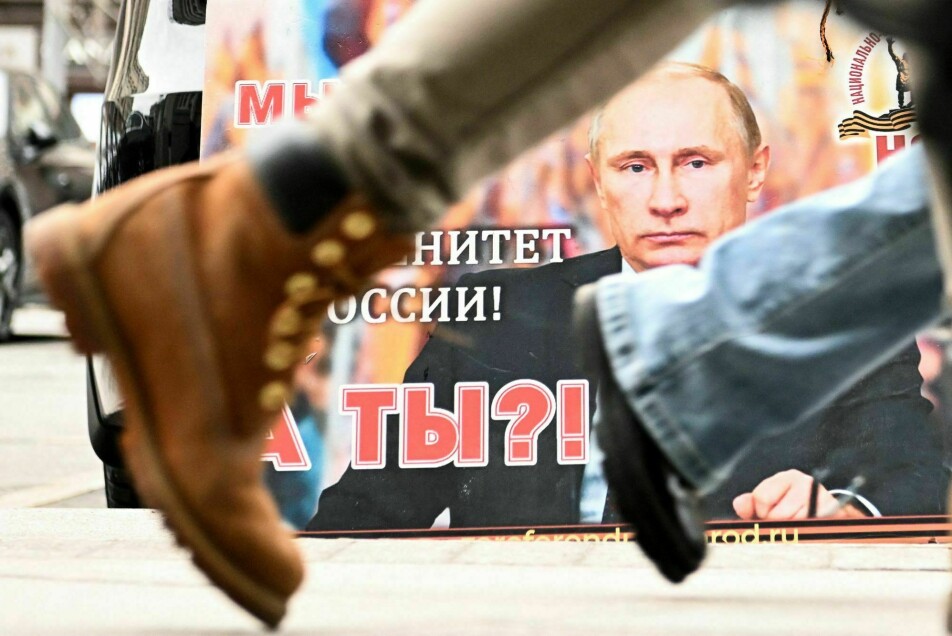
Invasion of Ukraine: “A lot of historical parallels to Hitler-Germany in the 1930s”, says Norwegian professor
“Putin is behaving like a Tsar and using rhetoric to justify an illegal war against Ukraine”, says professor Janne Haaland Matlary from the University of Oslo.
When Adolf Hitler came to power in Germany, he used the peace agreement after the first world war as leverage. The Treaty of Versailles from 1919 was viewed as harsh and unfair for the German Empire, while Hitler promised he would make Germany great again.
Russia’s president Vladimir Putin has the same idea. But he’s not butting heads with a peace agreement. Rather, he takes issue with the establishment of sovereignty and democracy in countries that were a part of the Soviet sphere in the 1990s.
“For Putin it’s unacceptable to have democracies so close to the Russian border, and not least in former parts of the Soviet Union”, Janne Haaland Matlary says to sciencenorway.no.
She is a professor of international politics at the Department of Political Science, University of Oslo.
It was just for show
According to Matlary, the invasion of Ukraine is reminiscent of the invasion of Hungary in 1956.
“Then, like now, Russians were striking down against the democratic freedom that people were standing up for”, she says.
The West now faces a tragic paradox when it comes to Ukraine, the professor believes. The West wants to protect democracy, but Putin is threatening with nuclear weapons if the they get too involved.
“We want to fight for democracy, but not with our own soldiers’ lives”, Matlary says.
Putin is portraying the invasion as self-defense, not an attack on democracy. It all started with Russia’s demand that Ukraine and NATO would promise that Ukraine would never become a member of the military alliance.
“It was an impossible demand, which Putin knew the West could never accept”, Matlary says to sciencenorway.no.
The past few weeks attempts at diplomacy were never taken seriously by Putin, Jens Stoltenberg, Secretary General of NATO said at a press conference a few hours after the invasion started on 24 February.
Matlary agrees:
“It’s all been just for show”.

Saving Russians from alleged genocide
Putin’s rhetoric during the past weeks, hitting it's peak during a one hour long speech on Monday last week, where he claims Ukraine historically as a part of Russia, are well known verbal constructions, according to Matlary.
“His choices of words are pre-fabricated. He uses well known propaganda in order to justify an invasion”, she says.
The only legal grounds to use military force, according to international law, is self-defense or to help another country.
“Putin has created a contrived motive to invade Ukraine, namely an alleged genocide of Russians in Ukraine”, the professor says.
Everything West is "Nazi"
The invasion of Ukraine is portrayed in Russian media as a step taken in order to safeguard Russian citizens in Ukraine against Nazis.
And Russia has not started a war, but rather a “special military operation” in order to stop a global confrontation, according to the website Sputnik International, which is regarded as a state controlled mouthpiece for Russian authorities.
Russia then, is to save Russians in Ukraine from the “Nazis” in the Ukrainian government.
“These are historical clichés, where Putin is repeating a Russian narrative about the West being all about Nazism. It resonates with the history from the Second World War. But it is totally absurd. Ukraine's president Volodomyr Zelensky is even jewish, as he himself has said – how could I be a nazi?”, Matlary explains.
No free press in Russia
But do the Russians believe this rhetoric?
“There are no, or very few, free media in Russia. Putin has full control over the media”, says Matlary, who is also a researcher at the Norwegian National Defence University College.
Russians who have demonstrated against the war over the past few days have been detained by the police, and risk facing charges of treason.
“A former general recently spoke out and tried to correct Putin’s version of the situation in Ukraine, and he is now being called a traitor”, Matlary says.
Imperialism
For all intents and purposes, Putin’s project is to make Russia great again. He is in the business of imperialism and legitimizes his aggressive war against Ukraine by claiming it was originally part of Russia, Matlary says.
“He is acting like a Tsar, and his intention is to rebuild the Soviet Empire which existed before 1990”, the professor says.
Putin has with the stroke of a pen broken The Budapest Memorandum on Security Assurances, originally signed in 1994 by Russia, the US and UK, as well as Ukraine, Belarus and Kazakhstan. Russia promised to not use force against Ukraine and respect the country as an independent nation.
“He is now breaking the core principles of international law: A nation’s right to sovereignty and self-governing, the prohibition against threatening nations militarily, and the Charter of the United Nations article 2.3 and 2.4 which prohibit aggressive warfare against other Nations. This is essential in the world we live in – these are the most important norms for nation-states”, Matlary stresses.
Putin fears freedom and democracy
Putin has disliked that the majority of the Ukrainian population and the democratically elected president have oriented themselves toward NATO and western countries. During the last election, the communist candidate received very little support.
“What Putin definitely does not want is for Ukraine to become a member of NATO, under the guise that this would represent a military threat against Russia”, says Matlary.
She doesn’t find this very credible, as both the USA and Russia have nuclear weapons.
NATO isn't a threat, it’s a defensive military alliance, according to Matlary. But NATO does protect and promote democracy, and is open for any democracy to become a member, also Ukraine.
“And this is what Putin fears. He has control over Russia, but he achieves this through fear, not popularity”, the professor stresses.
As in the 1990s, so also now: If the people rise and want freedom, Putin’s regime is going down. The infectious effect of a democratic and western oriented Ukraine is something Putin has all the reasons to fear, according to Matlary.
Translated by: Ida Irene Bergstrøm
———

































